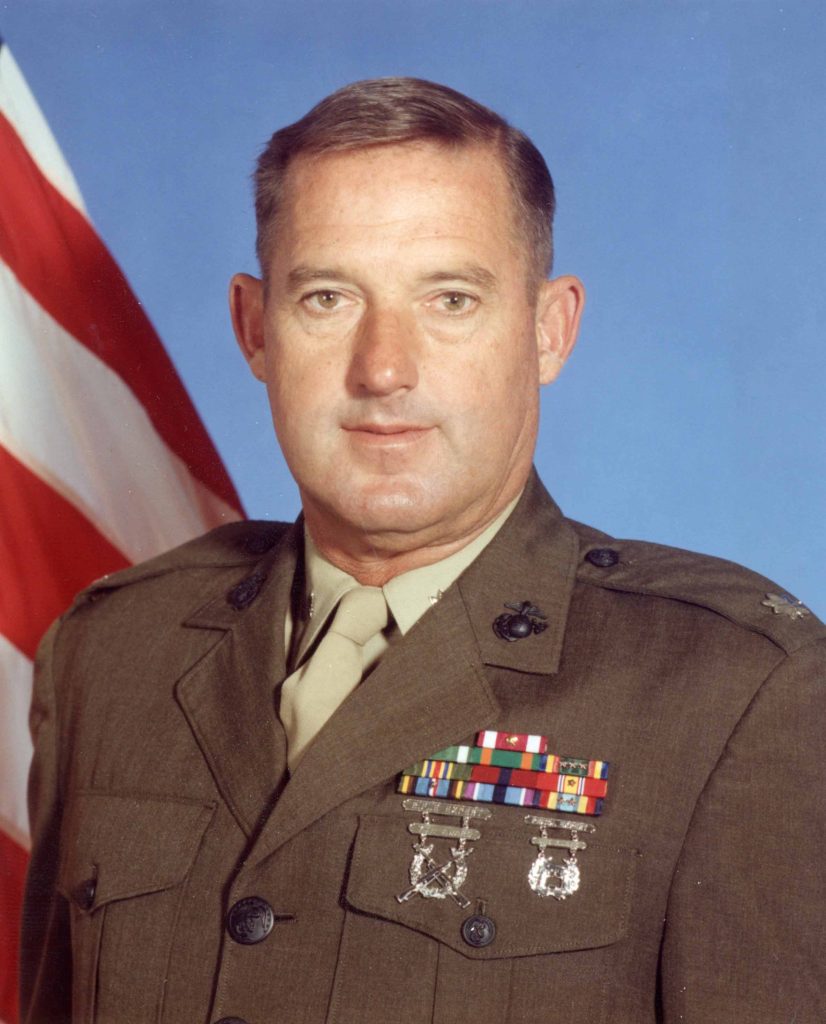
It could be summed up that Bob Muir was a loving husband, father, grandparent, and a loyal and proud member of the United States Marines. That was how he preferred to be remembered.
But, there was so much more to this man. He went through life living by the credo, “Be true to yourself.” As a career military officer, one can imagine the challenges he faced. And yet, Bob’s first reaction to all of them was to step back, take a breath, and apply his moral compass to the situation, being true to himself.
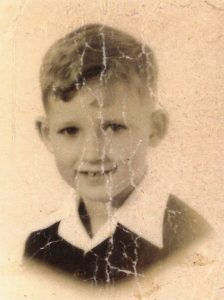
Bob Muir was a direct descendant of John Muir, the legendary naturalist, writer, and conservationist known for establishing Yosemite National Park and the Sierra Club. History remembers John Muir as “The father of our National Parks.”
John Muir’s influence on Bob’s life was staggering, as the younger Muir could never get enough of Yosemite and the wide-open areas surrounding it. His life was dedicated to family and the Marine Corps, but also to studying and researching the legacy of John Muir.
Bob was one of two sons born to Ruth Elizabeth Roberts and Fredric Wilson Muir. Their families settled in Canada in the 1800s after coming by sea from Scotland on square-rigged ships (known as coffin ships). They eventually migrated south to North Dakota, keeping the family farming traditions alive.
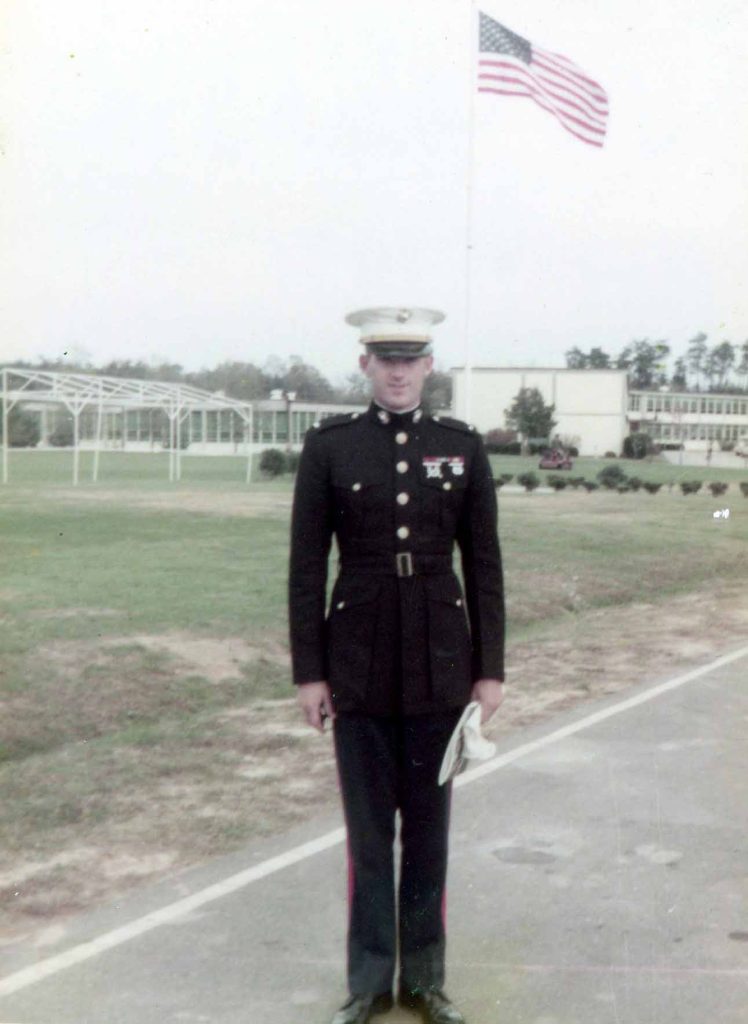
Bob Muir passed away Oct. 25, 2024 at the age of 82. He was born at the Key West Naval Air Station, March 6, 1943, and was the son and grandson of career Navy Officers.
Growing up in a Navy family, he found himself on the move constantly. Places he called home in those early years included Vallejo, CA, Washington D.C., Hunters Point Naval Shipyard in San Francisco, Arlington, VA, and twice in Coronado.
“Bob was my dear friend for as long as I can remember,” said Roy Quady. “We were like brothers. My parents were his Godparents, and his were mine. Our fathers were 1938 classmates at the Naval Academy and our years in Coronado were especially important to us.”
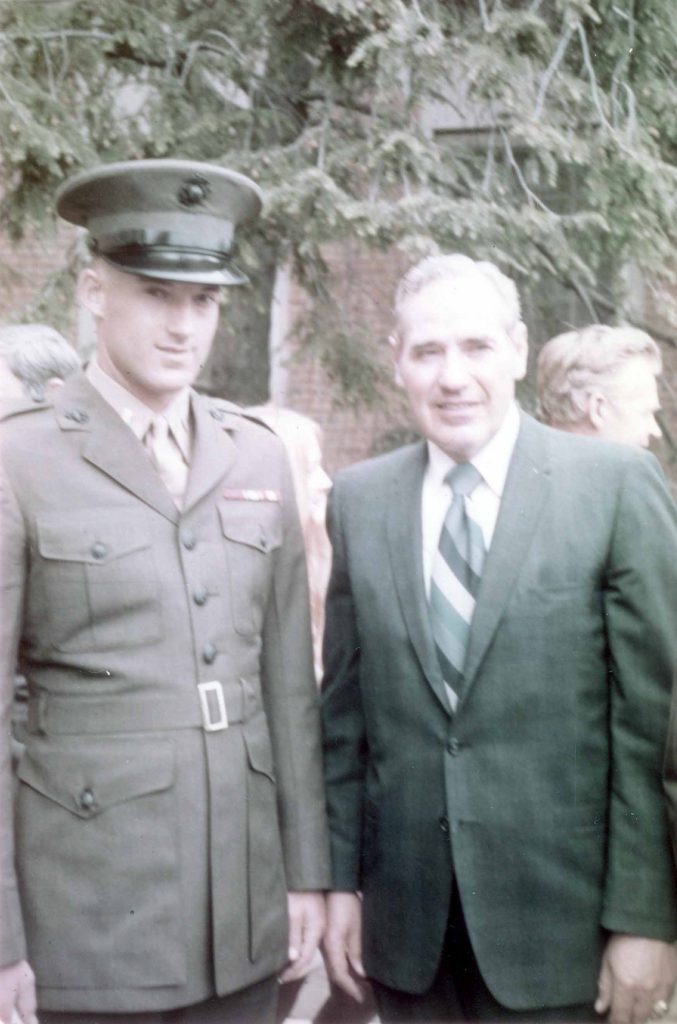
The Muirs lived in Coronado from 1949-1953. They lived next door to Sacred Heart School in 1949 and 1950, and then moved to a larger home on Pomona Ave.
“As kids,” remembered Roy, “we would explore the numerous empty homes in Coronado. We played kickball and dodgeball at Sacred Heart, and watched ‘The Lone Ranger’ on Channel 8. There weren’t many TV stations, nor many shows for us kids. My folks didn’t have a TV, but the Muirs did, so we spent a lot of time there.”
Quady also remembered the fascination of riding the old car-carrying ferryboats, and the presence of Pop Millar, the Coronado Police officer who directed pedestrian traffic at 7th and Orange and made sure the children got to and from school safely. When Pop Millar would catch Quady and Muir in the old houses, instead of writing them up, he would take them home to have a little talk with their parents.
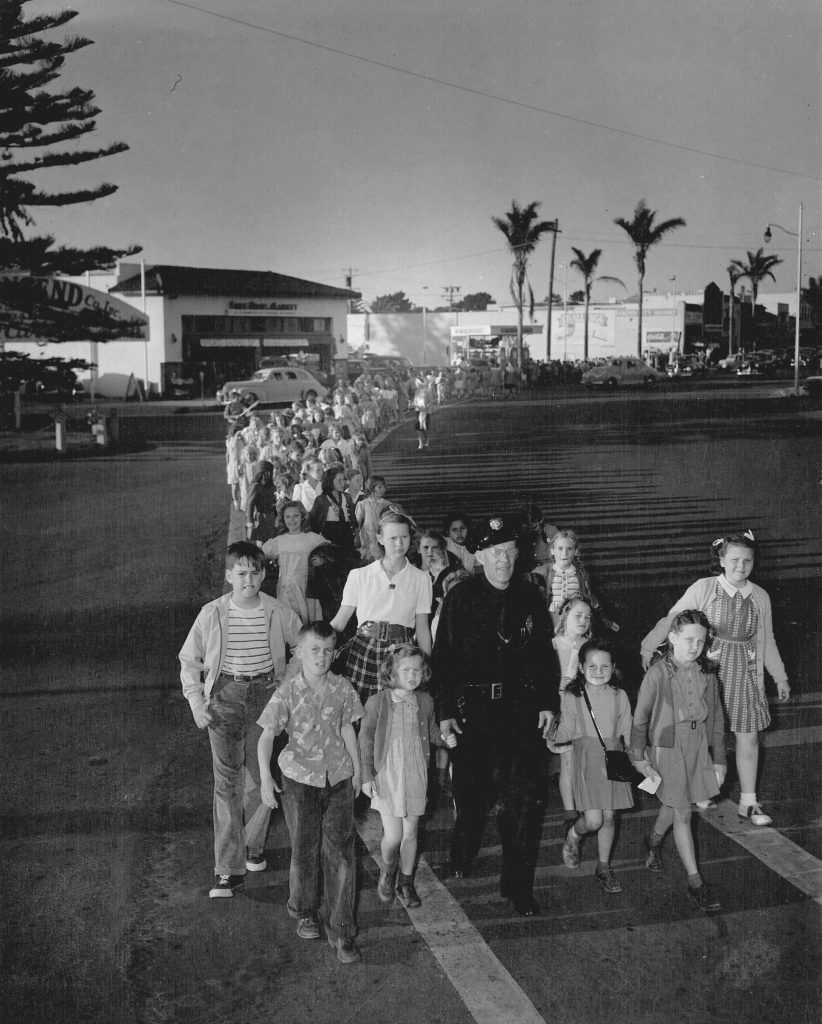
On Saturdays, Pop Millar would take all the children to the movies in town, at his own expense. He was known as “The Pied Piper of Coronado,” and was celebrated and honored across the country. Frank Sinatra sang his praises on national radio, and Coronado staged a parade in Pop’s honor. In later years, both Bob and Roy valued such influences in their young lives.
These were days when the population of Coronado was under 7,000. Coronado had a train and a water tower. Trolleys ran up the median strip of Orange Avenue and down Pomona and the Silver Strand. There was no Coronado Bridge. There were no Coronado Shores. It was a different time, and children who experienced that time cherished their memories forever more.
In 1951, Bob Muir’s parents appeared in the movie, “Submarine Command,” starring William Holden. The Coronado Journal-Compass ran an article about it. When Bob Muir’s father retired from the Navy, the family moved back to San Diego and settled in Point Loma, where Bob graduated from Point Loma High School in 1961.
Growing up, Bob loved country music. He picked up a guitar in high school, at the age of 16, and once contemplated changing his name to Bobby Capri and becoming a country music star.
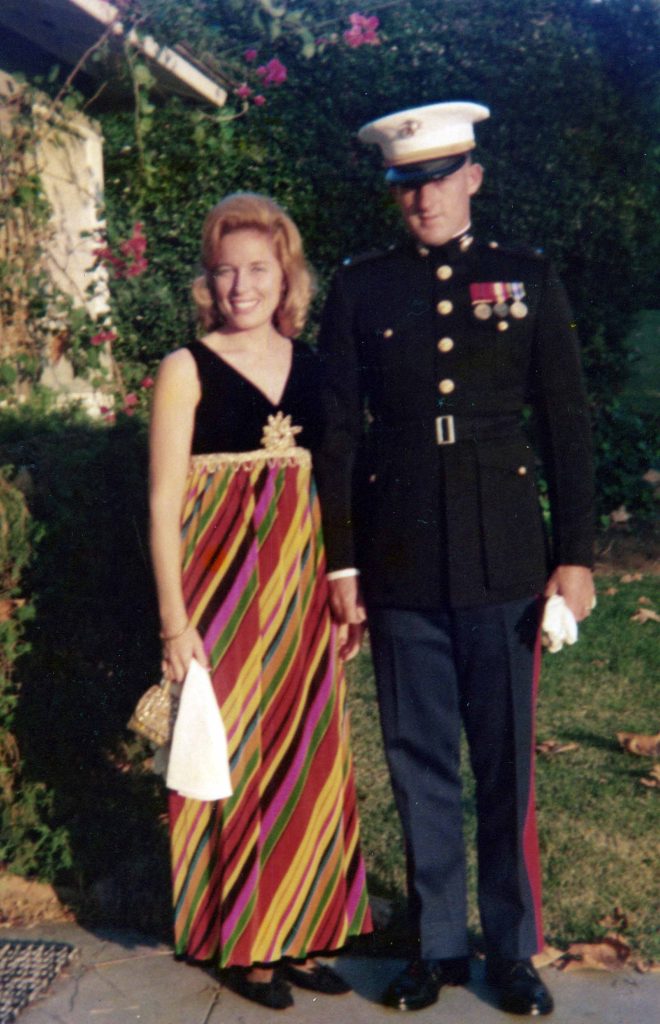
In his senior year, Bob met the love of his life, Saundra Hawkins, on a blind date. They went to the Sadie Hawkins Dance. As fate would have it, her maiden name was Hawkins.
They married in 1965, were together 63 years, and had three sons, eventually retiring in San Diego, where they lived on three acres of hillside in the suburbs of Vista for nearly 40 years. Next to his family and the Marine Corps, Bob loved the great outdoors. It was like his own personal church. It was where he could escape from the noise and chaos of the world.
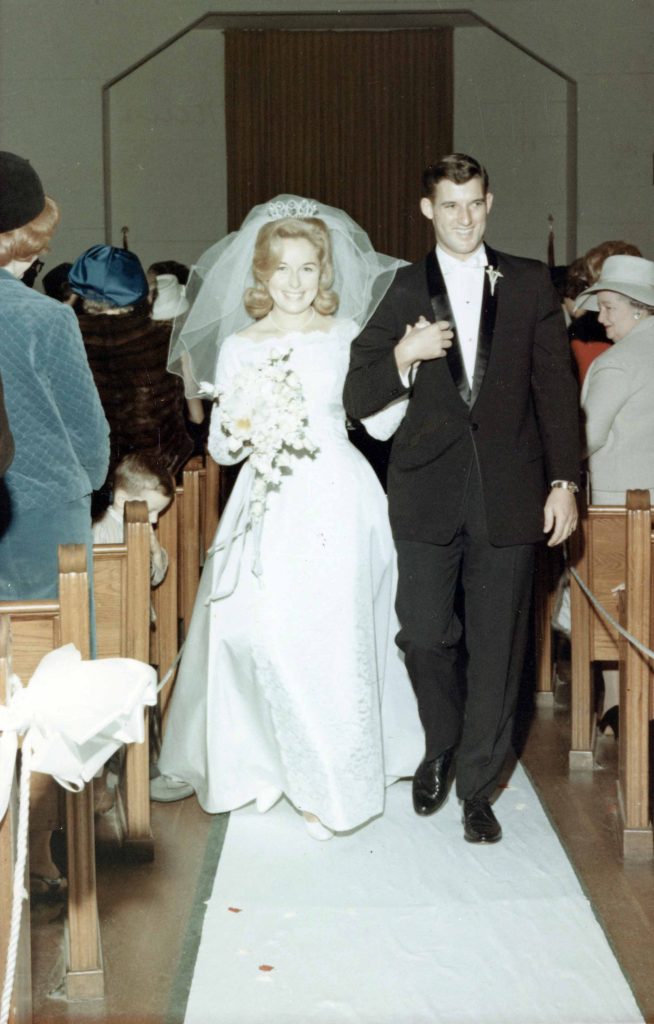
Bob Muir got his first introduction to the wide-open spaces of nature as a young boy delivering newspapers in San Francisco. He won a contest for selling new subscriptions and the prize was to join a handful of other delivery boys on a trip to Yosemite. Once there, they were turned loose for four days to wander in the countryside.
Bob would find trails and take off on his own. He couldn’t believe his eyes. Waterfalls to the right, snow-capped peaks to his left. The seed was planted, and Bob Muir’s life would never be the same. Bob shared this same love of Yosemite with his three sons. More seeds were planted, and continue on through his grandchildren.
Bob Muir enlisted in the Marine Corps after graduating high school. He served with the 1st Marines, 9th Marines in Okinawa, and the 7th Marines. Upon his discharge as a corporal, Bob attended San Diego State University, graduating with honors and distinction in three years.
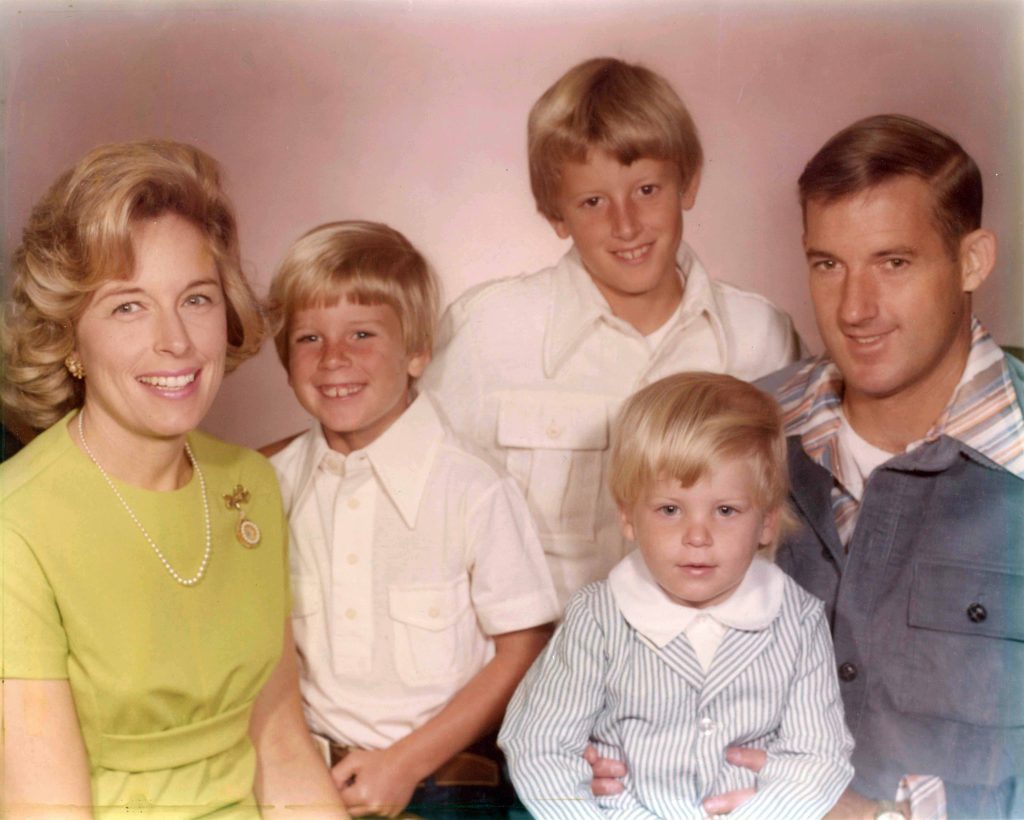
Briefly, he worked for ALCOA as a sales administrator in Los Angeles while waiting to return to the Marine Corps and attend Officer Candidates School in Quantico, VA.
As a Marine Corps officer Bob had various assignments. He was in Saigon when his youngest son was born, helping evacuate the Embassy. His final assignment was at MCRD where he retired as a Lieutenant Colonel in September of 1994. During his career he received the Legion of Merit, Meritorious Service Medal with Gold Star, Navy Commendation Medal, and Navy Achievement Medal.
No matter what the job, either as a Marine or in the civilian sector, everyone who worked with Bob agreed he was a complete joy to work with. While many expected the “new guy” to a by-the-book, no-nonsense Marine (like Robert Duvall’s character in “The Great Santini”) they were pleasantly surprised to meet Mr. Bob Muir. In fact, Bob Muir is remembered as a successful Marine because he was fair, sincere, sensible, and genuinely cared about all the Marines under his command.
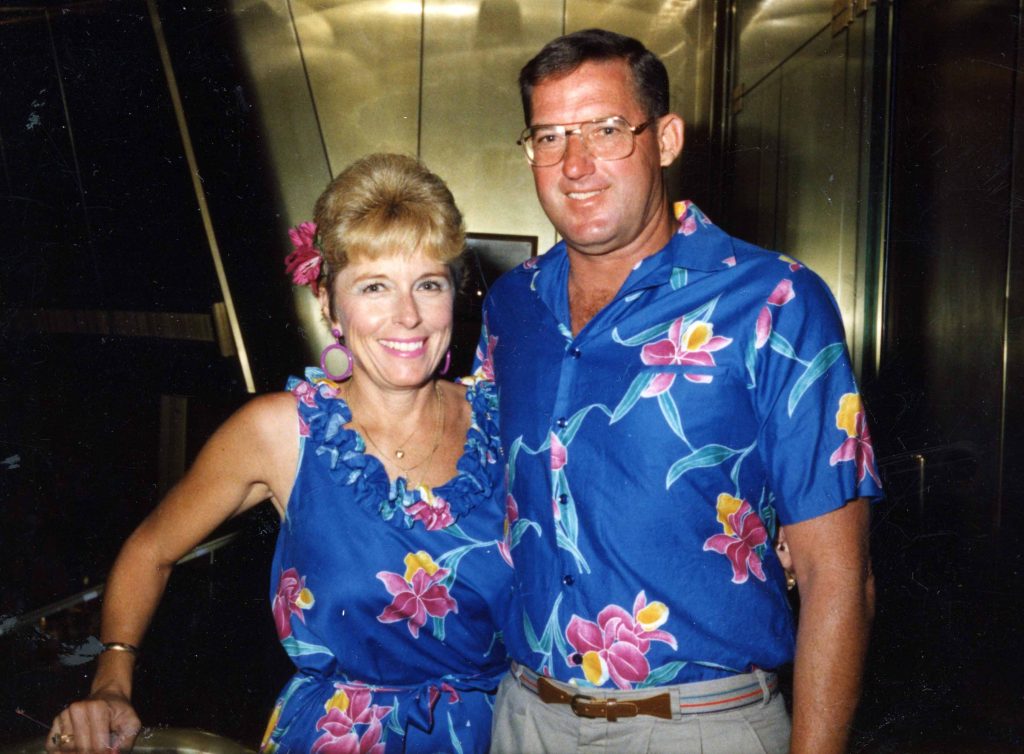
After retirement, Bob accepted a position at the NASA Ames Research Center in Mountain View, CA as Logistics Manager. After three years of weekly commuting from Vista to Mountain View, he decided to take a “semi-retirement” position in the San Diego area. That decision turned into a very rewarding career for 20 years as a non-profit test publisher, for the Adult Student Comprehensive Assessment System, where he served as chief financial officer and chief operating officer.
Bob enjoyed cooking, reading political and Civil War history, and researching his and Saundra’s family history, and the many road trips the two of them took around the United States and Ontario, Canada seeking old family farms, homesteads and gravesites. For 24 years, they had a second home in North Fork, CA, just outside of Yosemite Valley.
Bob wanted to be remembered as a true, honest, and decent man who cared for others. He was most proud to have been an outstanding Marine officer and devoted father to his three sons. “Be true to yourself,” was the message he constantly shared with his three boys. “Never give up,” he would tell them. “Keep trying to find your happy place.”
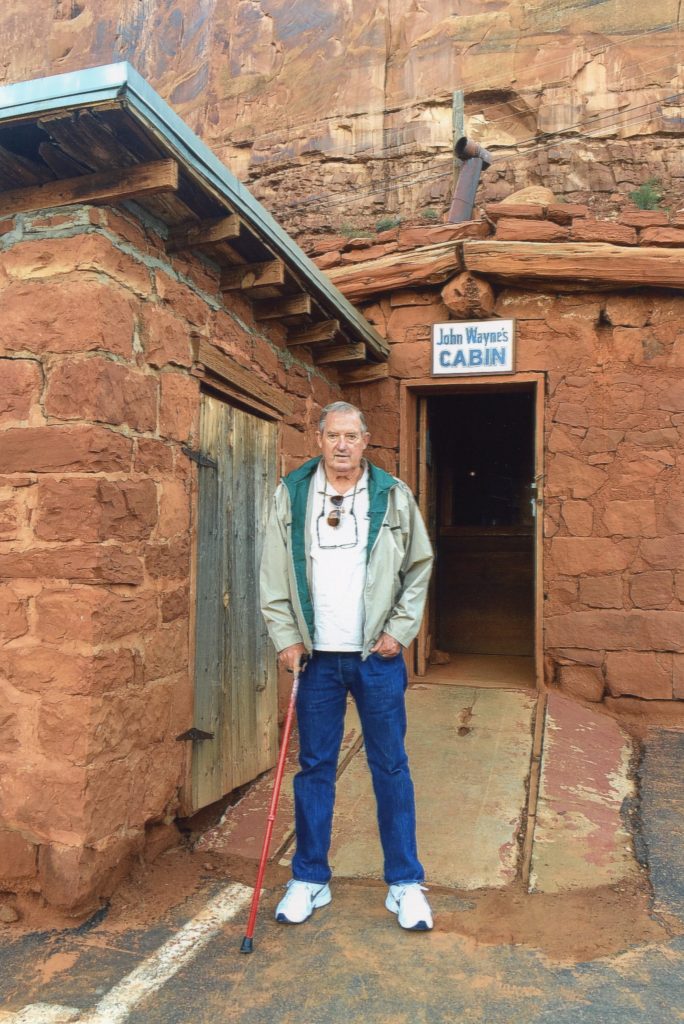
Son Kevin remembered how his father allowed he and his brothers to grow their hair long, which was a sign of the times unpopular with most Marine Corps fathers. “He respected our decisions,” said Kevin. “He loved us, and that was all the mattered. He was a dad before he was an officer, and we loved him all the more for it.”
There was one incident that drove that message home to Kevin and his brothers. “My dad wasn’t the kind of Marine who brought the Marine Corps home. We always knew he was a Marine, and a Marine officer, but he made sure we knew him as ‘Dad.’ The first time we actually saw the difference in how we were being raised, compared to traditional Marine kids, was when I was 12, and Dad was at Quantico War College. It was after school and there was a major who lived near us. He was that stereo typical gung-ho type of Marine officer.
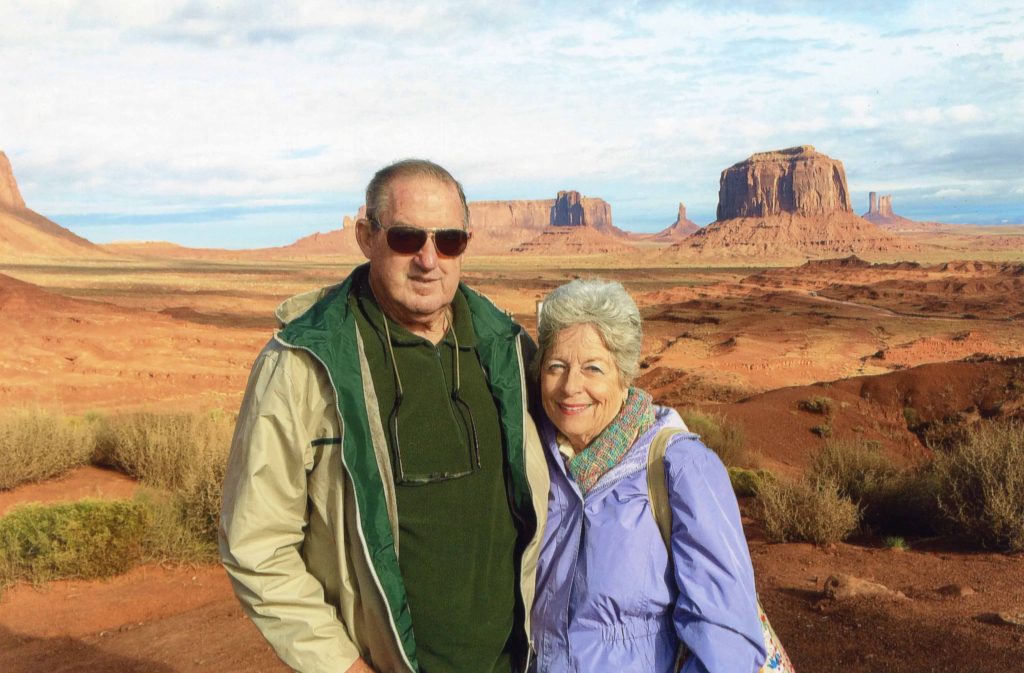
“One day three of my friends and I were playing football with his son, a big kid, bigger than us. At one point three of us were on top of his kid trying to bring him down when his dad yelled down, ‘Michael, did you do the dishes.’ Michael responded with ‘Yeah.’
“His father charged down onto the playing field, grabbed his son and started slapping him around. He dragged him into the house and ordered him to always address his father as ‘Sir.’ Then he took his belt off and gave his son a thorough beating.
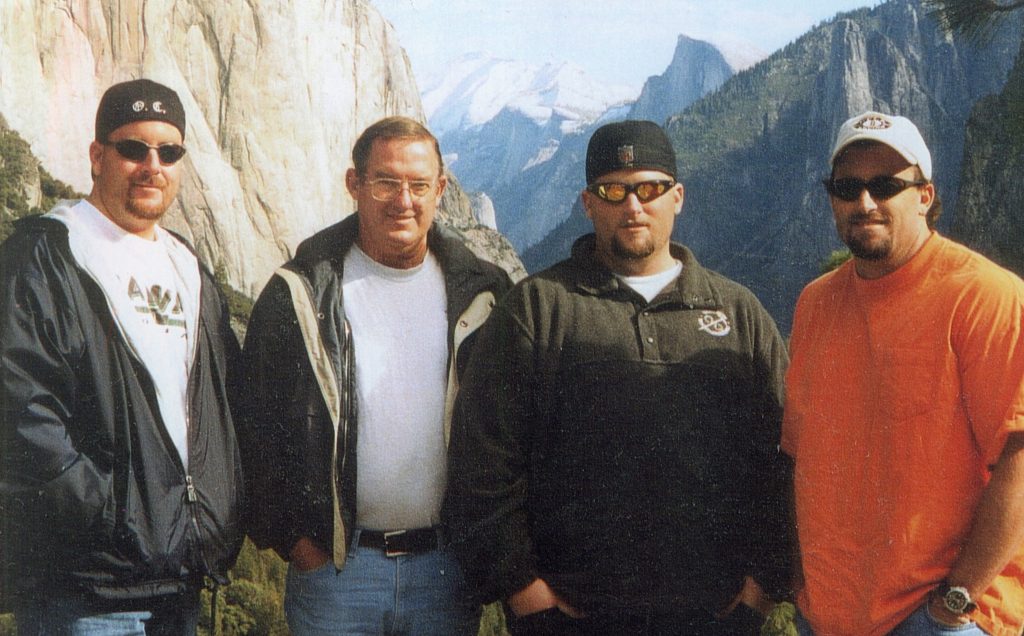
“My dad called us into the house and explained that we, as children, ‘won’t understand this right now, but I will never expect you to call me sir.’ We didn’t think too much about it, but later on that night it was my turn to take the trash out and there was the major standing out there, smoking a cigarette and doing his best General Patton imitation.
“I said hello and he corrected me immediately, ordering me to address him as either sir or major. As I walked back into the house my father was standing there looking past me at him. Dad walked up to him, and I’ll never forget how my dad told him in no uncertain terms that the difference between his sons and the major’s kids was that me and my brothers would not hate their father as they grew older. He told the major to never, never tell him again how to raise his kids. I’ll remember that as long as I live. And that’s how it always was with my dad.”
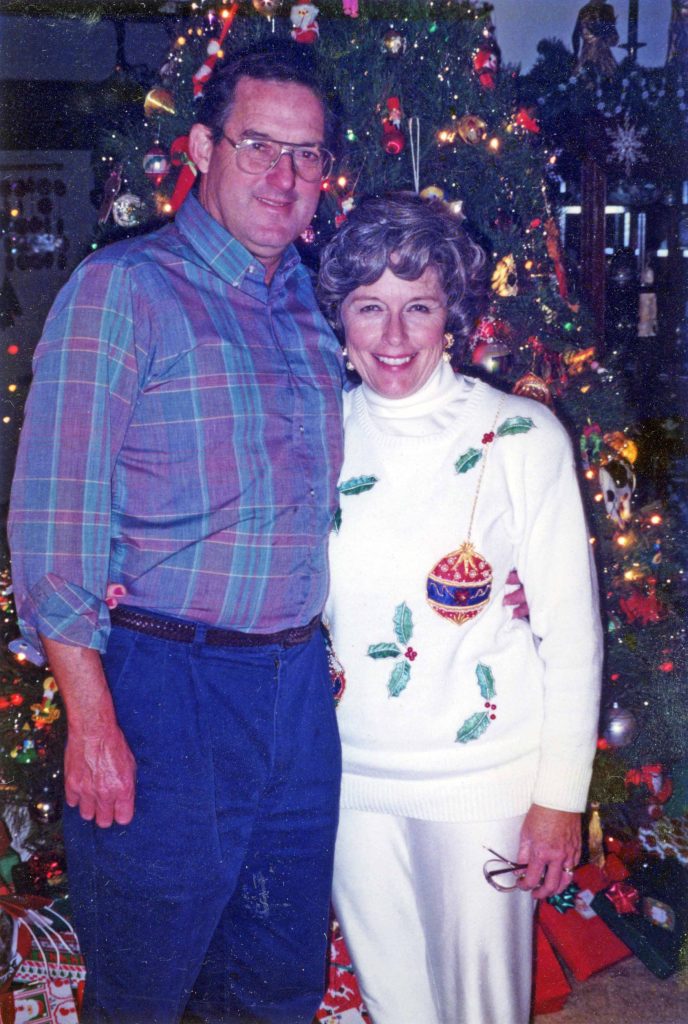
Robert Seymour Muir was preceded in death by his younger brother Douglas F. Muir (2001) and his youngest son John Edward Muir (2005). He is survived by his wife Saundra Muir of Vista, CA; son Robert Thomas Muir (Shannon), of Costa Mesa; son Kevin Hawkins Muir, of Vista; and four grandchildren. Bob Muir now rests at Fort Rosecrans National Cemetery on Point Loma, overlooking Coronado. He is the fifth Muir to rest in that hallowed ground. He is buried alongside his grandparents, parents and brother.
The family requests that instead of flowers, donations be made to the Camp Pendleton Navy Relief Society, “In Memory of Lt. Colonel Robert S. Muir.” Send donations to: Navy-Marine Corps Relief Society, Marine Corps Base Bldg., 520512 Basilone Rd, Camp Pendleton North, CA 92055.
Author’s Note: Thanks to Roy Quady for his assistance in researching Bob Muir’s story.




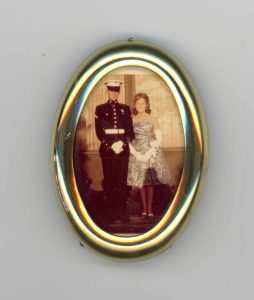

Thank you for this beautiful obituary about a wonderful man and his family. May he rest in peace.